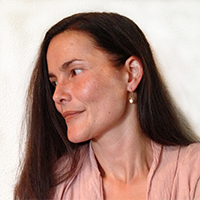Tom Howard/Margaret Reid Poetry Contest 2016
Congratulations to the winners of the 2016 Tom Howard/Margaret Reid Poetry Contest!
Honorable Mention $100
- Lynn Houston, The Air Lit Afire, Poetry
- Laura M. Kaminski, Anchorhold, Poetry
- Ellen Girardeau Kempler, For a Catfish (after Fukushima), Poetry
- Madelaine Caritas Longman, Insomnia, Poetry
- Jed Myers, The Road West, Poetry
- Jim Nawrocki, Custodial, Traditional Verse
- Daniel Kincade Renton, Sundowning, Traditional Verse
- Beth Somerford, The Colourist of Artificial Fish, Traditional Verse
- Ann Struthers, Long Line Inexorably Moving, April 12, 2016, Traditional Verse
- Gail Thomas, The Little Mommy Sonnets, Traditional Verse
Judge Soma Mei Sheng Frazier comments on the winning entries
What do the crown of sonnets, the nonce sonnet, the double abecedarian and the villanelle have in common? Phenomenal examples of each, along with singularly skilled poems written in free and blank verse, placed in the 2016 Contest.
As a professor of writing and the editor of a multimedia publication, I read a lot—sometimes to the point of exhaustion—so I was careful to block out long, flexible stretches of morning and afternoon time in which to pore over the contest entries at my leisure. I expected the hours to pass slowly. Instead, they flew: a glint of brilliance caught my eye in nearly every submission, propelling me onward or, in rare instances, stopping me, awed, in my tracks. I'd look up and find it was dark outside the café's windows; call my husband to apologize for my lateness.
My reading always began in an intimate coffeehouse near my home, but the poetry took me elsewhere: into an Episcopal Church where the first openly gay pastor waited to be consecrated; to the floor of the sea, where the giant catfish Namazu drifted in sleep, Nippon "resting safe along his spine" till nightmares shook his body; through the plaques and tangles of a mother's failing mind, disarmed of its bitter disappointments; to the liminal edges of roads, where the tree line hid silent hunters and a small child urged a beetle along with a straw.
Suffice to say, it was a deep pleasure to judge this contest. Given the option, I'd name twenty winners and a hundred honorable mentions from the 2,926 entries. Ultimately, though, it's been my honor and onus to come to some hard decisions, and I've selected the poems that hit me the hardest. Here is a bit more about them.
"The Fitting" by Jeff Shearer
Tom Howard Prize for verse in any style
Brilliantly conceived and simply structured, this poem employs ordinary words to impart an extraordinary moment. Even before the meaning of its narrative is clear, its euphonious cadence enthralls—and we are stricken by the starkly contrasting imagery of a bullet-proof vest and a priest's collar. As we shift between two disparate voices, meaning and nuance shift too. Perhaps the vest and collar are not so different: shielding and symbolizing the power of those sworn to protect and serve; exposing the risks inherent in leadership. Whatever you think of guns, tolerance or religion, "The Fitting" will speak directly to you, in its utterly unique voice, of the oaths we take, the institutions we enter, the rituals we observe. Over the course of a few months I read this poem again and again, unable to shake it. Each time, I experienced something new.
"Edges of Roads" by Trent Busch
Margaret Reid Prize for verse that rhymes or has a traditional style
This one snuck up on me. With its tone and title reminiscent of Frost, I underestimated the poem's individuality. But in seven quatrains peppered with internal and oblique rhyme, "The Edges of Roads" schooled me, functioning literally and metaphorically; zooming in and out to encompass the private and the shared. A close friend once told me that in his culture, hearing something described in detail is regarded as a first-hand experience. This poem taught me why: as I read it I was there at the edge of the road, watching small animals bounce off tires. I was there, clutching my gun as I crept into the wilderness—though not in so deep I could get lost. And I was there, kneeling out of sight while, in town, anxious voices called my name. We have all felt the sharp thrill, the tricky freedom, of seeing but not being seen. Yet most of us would be hard-pressed to describe it as artfully as it is set forth in this poem.
Honorable Mentions, Tom Howard Prize:
"The Air Lit Afire" by Lynn Houston
This poem gracefully navigates between the claustrophobic mining tunnels where "only the donkeys knew which men, out of God's sight underground, / had been among the pious, which would feed them tobacco to speed / through the squeeze points, and which used sticks and kicks" and the world above, where widows mourn after an explosion. Expert word choice and pacing, well-researched details and the fraught interplay of darkness and light make this poem distinctive.
"Anchorhold" by Laura M. Kaminski
Much has been written on the spirituality of food. It's appropriate, then, that this poem's narrator names the kitchen as her anchorhold, where she withdraws from the world to prepare earthly sacraments from flour and tomatoes. But before confining herself to this reality, she wanted more—sought to provide in other, weightier ways. "I never wanted / to follow Jesus," she confesses in spare, ascetic stanzas. "I wanted to be / Jesus..."
"For a Catfish (after Fukushima)" by Ellen Girardeau Kempler
This vivid imagining of mythical Namazu's accidental destruction of "Japan's brittle beauty" is no simple fable; no morality tale. Despite its surreal imagery and familiar storyteller's voice, the poem is frighteningly realistic. It indicts us with its gentle reminder, its legitimate warning—for a lack of ill intent does not mean a lack of culpability. And even the honorable may close their eyes for a moment and make a costly mistake.
"Insomnia" by Madelaine Caritas Longman
This poem is an incantation evoking our potency and expansiveness; the myriad ways in which we can heal or harm ourselves. It advises, "When you check your reflection, use the window. A sheet / of glass and silver won't show you as you are." It translates the language of birds; draws a line between the reader and an abyss of hopelessness and paranoia. And like insomnia itself, it floods us with images that are not explicitly present: children drawing birds by tracing their own outspread hands, a world demanding too much from every one of us, the waves and flashes of light that sometimes assail our eyes.
"The Road West" by Jed Myers
Each line break, observation, repetition and reversal in this poem is masterful. I have read and re-read it many times now, its stanzas becoming as intimate and alien as family. Knowing the implications, the narrator reflects on leaving his kid brother in an emotionally booby-trapped home "back in that molten epoch when [their mother] hacked / smoke into the oatmeal she cooked us..." An only child, I've no sibling relationship to compare. Yet I feel, in my gut, the tensions that keep this poem in perfect balance: remorse and relief, bitterness and hope, refined diction and plain.
Honorable Mentions, Margaret Reid Prize:
"Custodial" by Jim Nawrocki
This piece gives credence to William Wordsworth's naming of poetry's origin as "emotion recollected in tranquility". Straightforward, yet intricately structured, it inspects custodianship from multiple angles: protection, imprisonment, care, supervision, sanitation. Remembering his interim time spent working on a detox ward, waiting between schools, the narrator reports on the world-wise disillusionment of those whose vows separate them from the everyday world; the dark deaths we experience while living, and other counterintuitive truths. I should also note that "Custodial" is a dexterous example of the re-emergence of external rhyme.
"Sundowning" by Daniel Renton
This villanelle recalled to me a long-ago classroom conversation between Robert Mezey, Poet in Residence and Emeritus Professor of English at Pomona College, and one of my classmates. When the student questioned the value of traditional poetic forms, Mezey replied: "Take a ball and racket to the courts, and you can do a lot with them. But you can't play tennis unless you recognize the rules of the game." "Sundowning" is one hell of a tennis match. "At night, it's not a lie to say there never was a sun," the poem begins—and as new information and imagery are introduced, this and other lines are recast and recombined in an adroit response to disorientation and death.
"The Colourist of Artificial Fish" by Beth Somerford
Dispensing with traditional Shakespearean rhyme after the octet, this nonce sonnet's form underscores its content by juxtaposing two distinct ideas: the technical expertise required to portray something that we can see versus the artistic genius needed to accurately render our slippery internal workings. It takes its title from an occupation listed in an 1881 census preserved by the London Genealogical Society—and in the end, answers itself. Moving into the sestet, the sonnet abandons form to offer a stolen glimpse of the reader's own confounding heart, adeptly quickening its hidden pulse.
"Long Line Inexorably Moving, April 12, 2016" by Ann Struthers
The double abecedarian is an ancient, constricting form originating in Semitic poetry. Each of its 26 lines starts with the corresponding letter in ascending alphabetical order (A to Z) and ends with the corresponding letter in descending alphabetical order (Z to A). In the hands of a novice poet, the form creates clumsy, stilted work. But "Long Line Inexorably Moving" immediately eclipses form, blinding readers to the author's exacting craft; transporting us straight across borders, through "zoned camps strung with barbed wire;" mapping the refugee's grueling route to nowhere. This poem depicts the yawning chasm between a protected life and one uprooted and unclaimed.
"The Little Mommy Sonnets" by Gail Thomas
This crown of sonnets is fit for a king: deftly-wrought, untarnished and irrefutable. "Some people study for years at the feet of a master to learn how to live in the moment," the poet writes of her mother's dementia, which she later refers to as "the Zen master's lesson upended." Yet this is no reductive musing; no nostalgic, rose-tinted journey. Like Little Mommy herself, this work is neither standard nor heroic (a standard sonnet corona contains just seven sonnets; a heroic crown of sonnets, fifteen). Rather, it is precise and unsparing: an incisive probing of a shifting, entangled relationship.
See the press release about the winning entries. Learn more about the Tom Howard/Margaret Reid Poetry Contest.
Contest Judges

Soma Mei Sheng Frazier
Soma Mei Sheng Frazier is the final judge of our Tom Howard/Margaret Reid Poetry Contest. Soma's third prose chapbook, Don't Give Up on Alan Greenspan, was selected as the winner of CutBank's 2018 contest and released in 2019. Her previous fiction chapbooks—Salve (Nomadic Press) and Collateral Damage: A Triptych (RopeWalk Press)—earned praise from Nikki Giovanni, Antonya Nelson, Sarah Shun-lien Bynum, Molly Giles, Michelle Tea, and others. In 2015 she founded COG, a multimedia literary publication that she ran with her undergraduate students at Cogswell, which has featured Dave Eggers, Opal Palmer Adisa, Gish Jen, Denise Duhamel, and many more. Read this selection of poems and listen to her read with other Nomadic Press authors on KPFA 94.1 FM. Read Soma's brief Glimmer Train essay on literary craft.
Soma recently relocated from California to New York for a professorship at SUNY Oswego. Her sweet tooth demands sugar in everything but literature. She is now busy revising a novel.
Contest Judges

Jim DuBois
Jim DuBois assists with the judging of our Tom Howard/Margaret Reid Poetry Contest and previously with our North Street Book Prize. He studied writing and computers at Hampshire college. Now he spends his time inventing games, writing poetry and making art.









